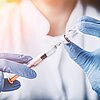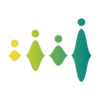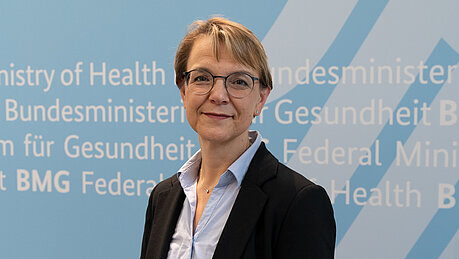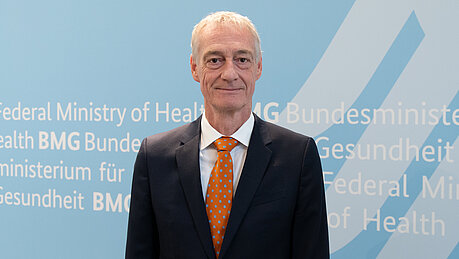Federal Institute for Drugs and Medical Devices (BfArM)
Better health for all citizens is the goal of the work of the Federal Centre for Health Education. As the higher authority specialised in promoting health, it develops strategies for health education and preventive health measures together with cooperation partners, which it in turn implements through campaigns and projects. Since a large number of the most prevalent diseases are the result of unhealthy behaviour (e.g., smoking, excessive alcohol consumption as well as overeating and poor nutrition), risks of contracting infectious diseases can also be reduced when the modes of transmission are known, thus increasing the possibilities of protection.
Hence, preventive measures and the promotion of health by means of information, education and motivation to adopt healthy behaviour represent effective ways of preventing the spread of many diseases. AIDS education is one of the central tasks of the Federal Centre. The campaign “Don’t give AIDS a chance”, launched in 1987, is the largest and most comprehensive campaign mounted by the Federal Centre to date. It is, in many respects, a model for a successful national prevention strategy.
Another focus of the Federal Centre’s work is preventing addiction. Under the motto “Make children strong”, it addresses children and adolescents with the intention of promoting their self-confidence, abilities to deal with conflicts and communication skills, thereby making them strong enough not to need to resort to addictive substances when confronted with setbacks and problems later in life. Other innovative activities include the organ donor campaign and the campaign to prevent alcohol abuse, “Alcohol? Know your limit”, which is supported by the Association of German Private Healthcare Insurers.
The Federal Institute for Drugs and Medical Devices is an independent specialised federal higher authority within the portfolio of the Federal Ministry of Health.
Roughly 1,000 employees – including physicians, pharmacists, chemists, biologists, lawyers, engineers, technical assistants and administrative staff – work at the Federal Institute for Drugs and Medical Devices and authorising new products and improving the safety of drugs, registring and assessing the risks of medical devices and monitoring trade in narcotic drugs and precursors. The Federal Institute for Drugs and Medical Devices thus makes an important contribution to protecting the population against health risks.
Authorisation and Registration of Drugs
A focus of the work of the Federal Institute for Drugs and Medical Devices is the authorisation of proprietary medicinal products according to the provisions of the Medicinal Products Act. In this conjunction, the health benefit, i.e., the effectiveness, the safety and the pharmaceutical quality are assessed. In addition, the Federal Institute for Drugs and Medical Devices fulfils important tasks within the framework of European drug authorisation.
Homeopathic drugs are either registered by the Federal Institute for Drugs and Medical Devices without any information regarding possible applications or authorised for specific applications.
Medicinal Product Safety (pharmacovigilance)
After medicinal products have been used by numerous patients subsequent to authorisation, adverse effects that may not have been evident in previous testing during the course of the clinical trials mandated for the authorisation process can manifest themselves. The Federal Institute for Drugs and Medical Devices collects and assesses reports on the adverse effects of medicinal products and takes the necessary steps to protect patients.
Registering and Assessing Risks Related to Medical Devices
Medical devices are instruments, apparatus, appliances, software, substances and preparations made from substances and other objects for medical purposes intended by their manufacturers for human use, e.g., x-ray machines, cardiac pacemakers, artificial hip replacements, bandages, infusion equipment, catheters, optical aids, condoms, medical instruments and laboratory diagnostics.
The main tasks of the Federal Institute for Drugs and Medical Devices involve the central collection, analysis and assessment of risks resulting from the application or use of medical devices and in coordinating any measures that must be taken. In this conjunction, it relies on the reports it receives regarding incidents with medicinal products.
Narcotics and Precursors
The Federal Opium Agency, which is responsible for granting licenses to legally trade in narcotic drugs and precursors (i.e., for the production of substances suited for use as narcotics) as well as for overseeing their production, cultivation and sale as imports as well as exports is also part of the Federal Institute for Drugs and Medical Devices. It cooperates with international institutions to monitor trade in narcotics.
Additional information
-
Federal Centre for Health Education (BZgA)
Official website of the BZgA
Additional information
-
Federal Institute for Drugs and Medical Devices (BfArM)
Official website of BfArM




























